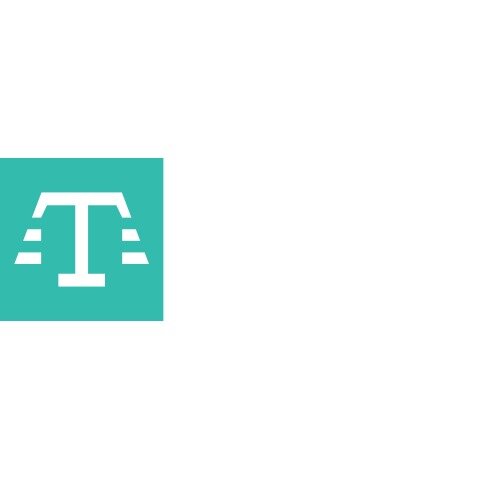Best Art & Cultural Property Law Lawyers in Tabriz
Share your needs with us, get contacted by law firms.
Free. Takes 2 min.
List of the best lawyers in Tabriz, Iran
About Art & Cultural Property Law in Tabriz, Iran
Art & Cultural Property Law in Tabriz, Iran, revolves around the protection, management, and regulation of artistic works and cultural heritage assets. Tabriz, with its rich history and cultural significance as a hub of Iranian art and architecture, faces unique challenges in maintaining and safeguarding its cultural property. This field of law is instrumental in overseeing the ownership rights, conservation efforts, and legal issues that pertain to cultural artifacts, artworks, and historical sites.
Why You May Need a Lawyer
There are several scenarios where individuals might need a lawyer specializing in Art & Cultural Property Law in Tabriz. These include disputes over the ownership of artworks or cultural artifacts, issues related to the export and import of cultural property, legal assistance in the preservation and conservation of cultural heritage, navigating the legal frameworks for art transactions, and dealing with cases of art theft and forgery. Legal expertise is crucial to ensure compliance with local and international laws and to safeguard cultural assets from illicit activities.
Local Laws Overview
The legal framework in Tabriz governing art and cultural property entails a blend of national laws and local regulations. Key aspects include the Cultural Heritage Organization's oversight, laws prohibiting the unauthorized excavation and export of cultural artifacts, and regulations on the legal ownership of artworks. Additionally, Iran's participation in international conventions like UNESCO's conventions plays a critical role in shaping local legislation and enforcement related to cultural property rights and heritage protection.
Frequently Asked Questions
What is considered cultural property in Tabriz?
Cultural property includes any artifacts, artworks, or sites that are of historical, cultural, or artistic significance, including antiquities, manuscripts, photographs, and archaeological findings.
How do I prove legal ownership of an artifact?
Legal ownership can be proven through documentation such as purchase receipts, certificates of authenticity, and provenance records. Legal counsel can aid in verifying and defending ownership claims.
Are there penalties for illegally exporting cultural property?
Yes, there are severe penalties, including fines and imprisonment, for the illegal export of cultural property from Iran, as it violates national laws and international agreements.
Can cultural property be privately owned?
Yes, cultural property can be privately owned, but it must be legally acquired and properly documented to uphold ownership rights under Iranian law.
What are the steps to conserve or restore a cultural artifact?
Consultation with experts in conservation and a legal assessment of the artifact's status are initial steps. Necessary permissions from relevant authorities may be required to undertake conservation efforts.
Are there restrictions on selling cultural artifacts in Tabriz?
Yes, there are restrictions. The sale of certain cultural artifacts requires adherence to local laws and international conventions, along with proper evaluation and documentation.
How can I protect my artwork from forgery?
Registering the artwork, maintaining thorough documentation, and working with experts in art law can help protect against forgery and unauthorized reproduction.
Who do I contact in case of art theft?
Immediately contact local law enforcement and organizations such as the Cultural Heritage Protection Office. Engaging legal counsel is advised to navigate the recovery process.
What international agreements impact cultural property in Iran?
Key international agreements include the UNESCO 1970 Convention and the UNIDROIT Convention, which focus on the protection and restitution of cultural property.
Can artworks be insured like other types of property?
Yes, artworks can be insured through specialized art insurance policies, which cover risks such as theft, damage, and loss of value. Legal advice can be sought to select suitable insurance options.
Additional Resources
For further assistance, individuals can reach out to the Cultural Heritage, Handicrafts and Tourism Organization of Iran, the Islamic Republic of Iran Customs Administration for import/export regulations, and consult legal professionals specializing in cultural property law. Additionally, educational programs by universities in Tabriz may offer courses or seminars on related legal topics.
Next Steps
If you require legal assistance in Art & Cultural Property Law, it is advisable to consult a lawyer with expertise in this field. Start by gathering all relevant documents and information pertaining to your case or question. Legal advisors can offer comprehensive guidance, help you understand your rights and obligations, and represent you in negotiations or potential legal proceedings. Consider reaching out to law firms in Tabriz with a focus on cultural property to schedule a consultation.
Lawzana helps you find the best lawyers and law firms in Tabriz through a curated and pre-screened list of qualified legal professionals. Our platform offers rankings and detailed profiles of attorneys and law firms, allowing you to compare based on practice areas, including Art & Cultural Property Law, experience, and client feedback.
Each profile includes a description of the firm's areas of practice, client reviews, team members and partners, year of establishment, spoken languages, office locations, contact information, social media presence, and any published articles or resources. Most firms on our platform speak English and are experienced in both local and international legal matters.
Get a quote from top-rated law firms in Tabriz, Iran — quickly, securely, and without unnecessary hassle.
Disclaimer:
The information provided on this page is for general informational purposes only and does not constitute legal advice. While we strive to ensure the accuracy and relevance of the content, legal information may change over time, and interpretations of the law can vary. You should always consult with a qualified legal professional for advice specific to your situation.
We disclaim all liability for actions taken or not taken based on the content of this page. If you believe any information is incorrect or outdated, please contact us, and we will review and update it where appropriate.








